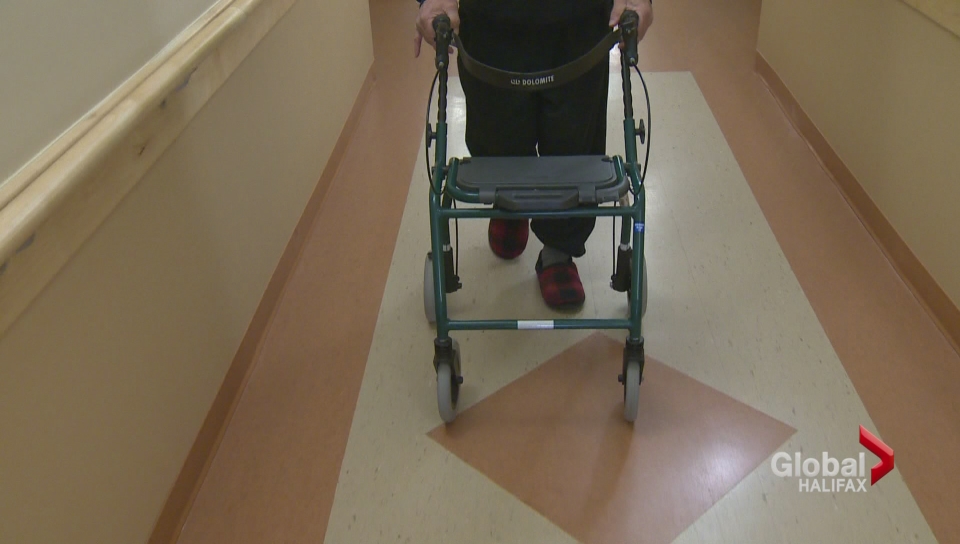A dearth of nursing homes and an aging population is creating a growing backlog that’s putting pressure on families across Canada.

In Newfoundland, Evelyn Canning was already struggling with Alzheimer’s disease when, because of government policy, she was dispatched to a nursing home over 200 kilometres away from her hometown of Grand Falls-Windsor, N.L.
It was almost impossible to visit her on a regular basis, her son David told Global News. It took six months until she could move into a bed back home, he added.
“There was a lot of nights that you’re just worrying about her and wondering what’s on the go and how she’s feeling, especially with her state of mind,” David said.

Other provinces have similar policies aimed at moving elderly people from hospital beds and into nursing homes as fast as possible.

Get weekly health news
Some provinces, like Nova Scotia and New Brunswick, limit to 100 kilometres the distance that seniors can be moved.
“We see this happen across the country,” said Adrienne Silnicki, national coordinator of the Canadian Health Coalition.
“The provinces are having a funding crunch, where they’re not funding enough long-term care homes. People are unable to get access to the care that they need, and, as a result they are being placed in places that are not always appropriate for them.”
In Ontario, the waiting list for long-term care beds is 32,000 people — the size of a small city — and the average wait time is 137 days.
The full extent of the problem isn’t known, since the Health Council of Canada — a government-funded agency that tracked such issues — was disbanded in 2013.
The Newfoundland and Labrador government is rushing to announce more nursing home beds, to ease what David called a crisis.
“She wore herself out, looking after us,” Canning said, adding he’d like to think his mother could be taken care of in her greatest time of need.







Comments